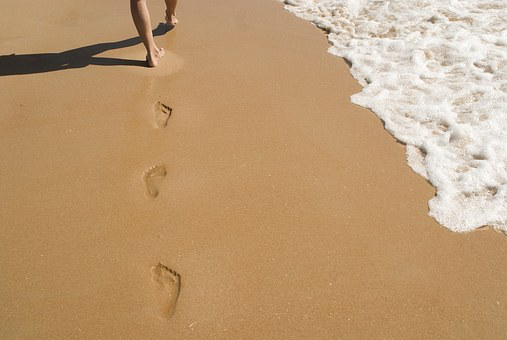
CUBA STANDARD — Closing a gap through which a rising number of Cubans have been entering the United States, and taking a controversy off the shoulders of his successor, outgoing President Barack Obama on Jan. 12 ended the long-standing “wet foot, dry foot” policy.
“Effective immediately, Cuban nationals who attempt to enter the United States illegally and do not qualify for humanitarian relief will be subject to removal,” Obama said in a statement. “By taking this step, we are treating Cuban migrants the same way we treat migrants from other countries.”
The old policy, established under Bill Clinton in 1995, granted all Cubans a path to legal residence and eventual citizenship, if they succeeded to set foot on U.S. soil. Cubans caught at sea were returned to the island.
The Cuban government has long attacked the policy, saying it enticed Cubans to risk their lives, caused hijackings and human trafficking, and produced brain drain. However, it also served as a political pressure valve for Cubans anxious to improve their lot.
Both governments issued a joint declaration the same day. A statement from the Cuban foreign ministry called the move “an important step in advancing bilateral relations.”
“The adoption of a new migratory accord with the U.S. was a permanent interest of Cuba, to resolve grave problems that affected relations,” wrote Joesfina Vidal, the Cuban diplomat in charge of negotiations with the United States in a Tweet.
Bilateral agreement
The new immigration policy, which treats Cubans like migrants from other nations in the region, is based on a bilateral agreement.
“For this to work, the Cubans had to agree to take people back,” Assistant to the President and Deputy National Security Advisor Ben Rhodes told reporters in a conference call together with Homeland Security Secretary Jeh Johnson.
Cuba, according to U.S. officials, agreed to take back all citizens who left within the past four years. Havana also agreed to take back 2,746 Cubans who have been lingering in U.S. detention and deportation limbo for many years since being convicted of criminal offenses; U.S. authorities will “replace” them with other Cuban immigrants, Cuban officials said in a press conference in Havana.
A senior U.S. official cited by Associated Press said the Cuban government didn’t give any assurances about treatment of those sent back, but that political asylum remains an option for Cubans.
The Cuban Adjustment Act, which allows Cubans to become permanent residents a year after arriving in the United States with a visa, remains intact. The United States continues its commitment to issue at least 20,000 visas per year to Cubans.
Ending another controversial defection program
The Obama administration also revoked a policy that facilitated the defection of Cuban medical personnel working abroad. The controversial Cuban Medical Professional Parole Program was established in 2006 under President George W. Bush.
“The United States and Cuba are working together to combat diseases that endanger the health and lives of our people,” the White House statement said. “By providing preferential treatment to Cuban medical personnel, the medical parole program contradicts those efforts, and risks harming the Cuban people.”
Justifying the end of the policies, Rhodes cited a rise of arrivals without papers in 2016, when 54,000 Cuban migrants — many in anticipation of a policy change in Washington — flocked to the United States, many through third countries as far away as Ecuador. In comparison, some 40,000 Cubans came in 2014.
“This was the appropriate step at the appropriate time,” Rhodes said, asked why the administration moved now, in the last week of Barack Obama’s presidency. He explained that the U.S. and Cuban governments had been working “sequentially,” arriving at this particular issue only recently, after months of negotiations.
Reactions
Half a dozen Cubans on the streets of Havana interviewed on camera by Diario de Cuba had mixed and complex reactions, but overall they seemed to emphasize that the change in U.S. policies is reasonable.
“It helps those Cubans traveling by airplane,” said one man, referring to those who have obtained visas.
Pro-normalization advocates in the United States welcomed Obama’s move.
“Ending ‘wet foot, dry foot’ is a historic decision and a good one,” said Vicky Huddleston, a former chief of the U.S. Interests Section in Havana, in a Facebook post. “There will be consequences — good and bad.”
Although most U.S. hardliners are in favor of changes to the Cuban Adjustment Act, at least one criticized Obama’s move as damaging to the Cuban people and pointed out that “Congress was not consulted”.
“While more needs to be done to prevent the small universe arriving from Cuba who may seek to exploit the privileges and freedoms that come with the Wet-Foot Dry-Foot policy, those few actors should not destroy our efforts to protect the many who are forced to flee persecution,” said Sen. Robert Menendez (D-N.J.) in a statement.“Today’s announcement will only serve to tighten the noose the Castro regime continues to have around the neck of its own people.”
A last-minute favor to Trump?
While the president-elect has announced he would submit Obama’s Cuba policy to a “bottom-up review” and roll back executive orders, this administrative rule change may remain standing after Donald Trump’s inauguration.

Trump has said he would like Congress to repeal the Cuban Adjustment Act, which dates back to the Lyndon Johnson administration. In an interview with the Tampa Bay Times on Nov. 11, Trump said that allowing Cuban immigrants legal access to the United States under the Adjustment Act is wrong.
“Both countries must be interested in not going back past the advances that have been made today,” said Josefina Vidal, the Cuban chief negotiator, in a press conference in Havana.
—Ana Radelat contributed to this article

